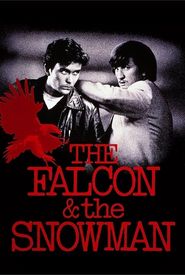Maria Grazia RosaDomenica D'Amato, widely recognized by her professional moniker Maria Muldaur, entered the world on September 12, 1943, within the culturally rich and historic confines of Greenwich Village, a neighborhood in New York City that has long been synonymous with artistic expression and creative fervor.
Maria's teenage years were marked by a profound and abiding fascination with the rich, soulful tones of rhythm and blues music, a fascination that would ultimately come to shape the distinctive sonic identity she would later cultivate.
Maria's musical odyssey progressed and evolved as she actively engaged in impromptu jam sessions within the vibrant cultural hub of Greenwich Village, thereby cultivating her musical prowess and artistry.
Maria embarked upon a significant journey during the early 1960s, making her way to the state of North Carolina, where she had the privilege of studying the intricacies of bluegrass fiddle under the guidance of the illustrious folk and country musician, Doc Watson. This enriching experience not only served to expand her musical knowledge and appreciation but also allowed her to develop a profound comprehension of the bluegrass genre, its nuances and complexities.
Maria's return to New York marked a significant turning point in her musical journey, as she became an integral part of the Even Dozen Jug Band, a collective that would eventually disband, thereby creating an opportunity for her to join forces with the Jim Kweskin Jug Band in Boston, Massachusetts.
Maria's remarkable journey as a solo artist was merely on the cusp of unfolding, with the curtain rising on a new chapter in her illustrious career, as she embarked on a path that would soon see her establishing a distinct identity as a singer, songwriter, and performer, free from the collaborative confines of her previous partnership, which had yielded two exceptional albums on the esteemed Reprise record label, a testament to the duo's harmonious synergy and creative chemistry, before their personal and professional relationship came to a close in 1972.
Maria's musical career reached a significant milestone in 1974 when she released the sultry and captivating song "Midnight at the Oasis", which catapulted to a remarkable #6 position on the esteemed Billboard pop charts, garnering widespread attention and acclaim.
This remarkable achievement was soon followed by the release of the equally impressive single "I'm A Woman", which also garnered substantial attention and recognition, further solidifying Maria's position as a rising star in the music industry.
Maria has since embarked on a prolific music career, characterized by the release of a diverse array of albums that have garnered widespread critical acclaim.
Maria's music career continued to flourish in the years that followed, with a steady stream of successful album releases that showcased her exceptional talent and artistry.
Her 2000 album "Meet Me at Midnite" was a particular highlight, earning a well-deserved nomination for the prestigious W.C. Handy Blues Award, which is one of the most esteemed honors in the blues music industry.
Not to be outdone, Maria's 2002 album "Richland Woman Blues" also received widespread critical acclaim, culminating in a nomination for the coveted Grammy Award for Best Traditional Blues Album.
Maria's artistic endeavors have been increasingly centered around the creation of tribute albums, a testament to her profound respect for the legacies of influential musicians. Her repertoire now includes interpretations of the iconic works of Shirley Temple, a beloved child star, as well as the sultry, jazzy sounds of Peggy Lee, a legendary vocalist. Moreover, Maria has also paid tribute to the profound impact of Bob Dylan, a music icon known for his poetic songwriting and distinctive voice.
Maria Muldaur, a stalwart figure in the realm of folk and blues music, has etched her name in the annals of history as a paragon of artistic excellence, her contributions to the genre serving as a testament to her unwavering dedication and unbridled passion.
With a career spanning decades, Maria Muldaur has consistently pushed the boundaries of her craft, effortlessly blending the raw emotion and storytelling prowess of folk with the soulful, emotive intensity of the blues, thereby creating a unique and captivating sound that has captivated audiences worldwide.
Throughout her illustrious journey, Maria Muldaur has been honored with numerous accolades and recognition, including multiple Grammy nominations and wins, as well as a slew of awards from the National Academy of Recording Arts and Sciences and the Americana Music Association, among others.
As a testament to her enduring impact on the music world, Maria Muldaur's legacy continues to inspire and influence a new generation of musicians, while her own music remains a timeless treasure, cherished by fans of all ages and backgrounds.
In addition to her impressive musical accomplishments, Maria Muldaur is also an accomplished author, having penned several books, including her memoir, "Don't Worry 'bout a Thing," which offers a candid and introspective look at her life, career, and the experiences that have shaped her as an artist and a person.
With a career that has spanned over five decades, Maria Muldaur has solidified her status as a true musical legend, leaving an indelible mark on the world of folk and blues, and cementing her place as one of the most beloved and respected figures in the music industry.


















